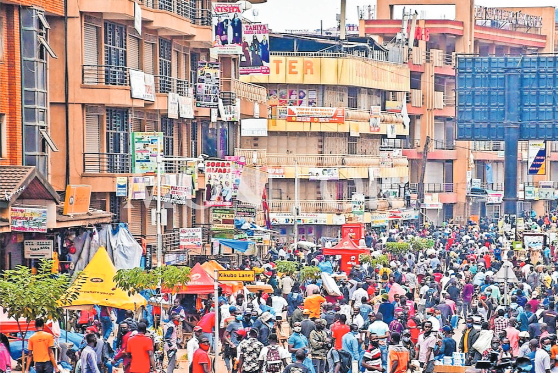Prime
Avoid costly infrastructure diplomacy

Innocent-Nkwasiibwe
At the swearing-in ceremony on May 12, President Museveni announced a plan to build a tarmac road connecting Uganda and Burundi through Tanzania . The above announcement came at the heels of another recent one, to the effect that Uganda would build three roads in the Democratic Republic of Congo, neighbour to the west. The Congo projects are supposed to be co-funded. It will be remembered that a few years ago, Uganda, using own resources, built a school in North-West Tanzania. This while some of our very own children here still attended ‘mango tree classes’.
With an estimated total road network of 129,469 kilometers, of which 50 per cent is access roads, 26 per cent district roads, 20 per cent urban roads and 17 per cent national roads, it is clear that majority of the road network is still at pre-modern, most in a state of disuse. Majority road construction was financed by borrowed resources from development partners, bringing into question whether foreign roads are affordable to the Ugandan taxpayer, if at all desirable. That a country failing at own roads goes ahead to spend colossal sums on neighbouring countries’ roads (the business prospects highlighted notwithstanding) is not just unprecedented, but in view of complex geopolitics, looks like nugatory grandstanding or adventurism.
As a member of the Northern Corridor transit and Transportation Authority, the leadership should instead be prioritising joint efforts. This multi-modal arrangement links land locked countries in the region to the sea port of Mombasa. The treaty, and its protocols seek to facilitate interstate trade between DR Congo, Burundi, Rwanda, Uganda and Kenya, and has since 2012 been joined by south Sudan. Inter connectivity, here, is not just of roads, but also rail, waterways, pipelines, transportation of dangerous goods and facilitation of transit agencies, traders and or employees. Multi-lateralism seems to work best since each does their bit, and eliminates free-riding by those not prioritis ing critical infrastructure at home.
Even here, note must be made that the resources have not necessarily been locally generated. Trade mark East Africa(TMEA), and other bilateral and multi lateral facilities have pumped millions of dollars into road construction, and associated developments like the one stop border posts (EAC/COMESA). To ignore these already existing facilities and channel state resources to unilateral pet projects borders on the irresponsible. Moreover, no evidence has so far been tabled of the other possible counterfactual scenarios. Statements as to possible doubling of cross-border trade, particularly in the Congo are largely unproven and in any case do not make an honest interrogation of the other variables. Geopolitically, it might be better to invest in confidence building. Building roads to bypass problematic neighbours looks like a poorly thought out gamble, yet diverting critical resources from more important transformational aspects of the budget. The 2021/22 Budget framework paper indicates that trade with EAC countries was still at a deficit by about $217million during FY 2019/2020. Certainly, the surpluses in Rwanda and Burundi were affected by non tariff barriers and border closures, but negotiation, while slow, would be the ultimate guarantee to results . Geopolitics relies on facts, and one unchangeable reality is that as a country, you don’t choose your neighbours. Some ‘by pass’ roads seem to suggest that we cannot quarrel with currently friendly countries, but a quick look at recent history tells a different story.
In view of priorities in boosting tourism (where cross border resources and opportunities do, in-fact exist), improving competitiveness (from a cost control perspective), the need to harness regional markets to take advantage of increased industrial and other output ( making stability and harmony critical) , negotiation, not strategic bullying among countries is most logical. Projected efforts in the framework paper to bring back the state in development should not create a monster and actions like creation of state mining companies (with associated monopoly failures) should leave space for business and focus on policy and regulation.
Joint cooperation in strategic mineral exploitation, from a diversity of nationalities in the region might create a sound foundation for discussion (the ICGLR has already created basic ground rules for the value chains). Along with it would come joint infrastructure, either to exploit the resources or as a result of associated activities. Multi-lateral projects, even from a ‘national interest’ perspective have great potential to strengthen prospects for dialogue since mutual benefit for all states would be easily visible. Strategic isolation is costly and complicates relations for neighbours.
Innocent-Nkwasiibwe is chief executive officer at the Tripartite Initiative for Resource Governance in Africa.




